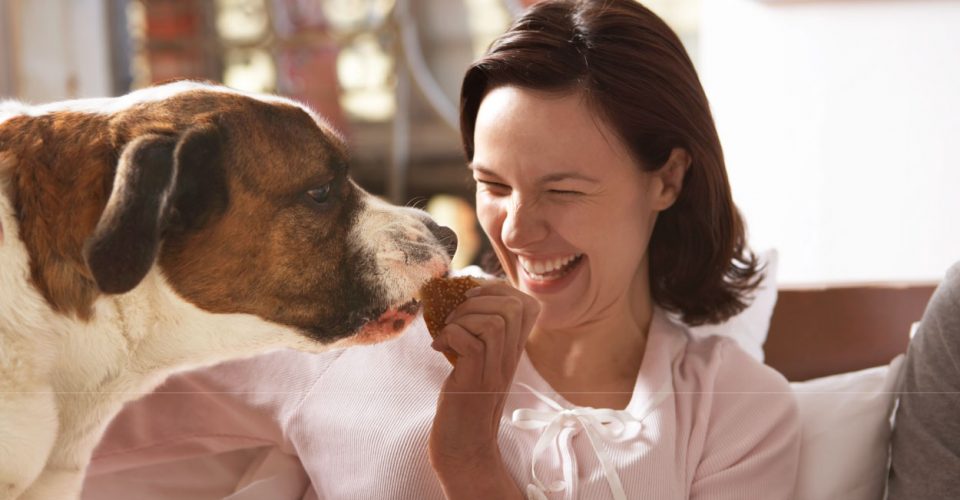Healthy Pet Care – The Truth About Table Scraps
As a dedicated pet owner, you are likely interested in providing the best care for your furry friend. Fundamental to this is focusing on their nutritional needs which go beyond just dry kibble or canned food.
Many of us have been tempted at one time or another to treat our pets with leftovers from our meals, commonly known as table scraps. Well, it’s essential we delve into how these human foods affect the health and well-being of our domestic animals, uncovering if they truly contribute nutritionally or could potentially cause harm instead.
So without further ado, let’s explore this topic thoroughly, and discuss what you need to do in order to keep your fur baby in fine fettle.

The Hidden Dangers of Table Scraps for Pets
Although offering your pet table scraps may seem inviting or even harmless, it could have potential hidden dangers. To keep them safe and healthy:
- Avoid onions and garlic: These common kitchen ingredients can cause stomach irritation in both dogs and cats, leading to red blood cell damage.
- Keep coffee grounds out of reach: Caffeine poses significant health risks to pets including heart rate abnormalities.
- Put chocolate treats aside: While delicious for us, chocolates contain theobromine which is toxic to dogs.
But that’s not all you need to be cautious about. Apart from these potentially harmful foods, there are also concerns about portion size control when dealing with table scraps. Overfeeding may result in weight issues and related health problems such as diabetes or hypertension, among other complications.
Understanding the Nutritional Needs of Your Domestic Animals
Foundational to healthy pet care is knowing what your pets need nutritionally. Their dietary requirements naturally differ from ours. A balanced and nutritious diet is key, including the following essentials:
- Proteins: These are vital for growth and energy provision for cats and dogs alike.
- Fats: Beneficial fats like Omega-3 contribute towards a healthy coat and skin, besides supporting brain health.
- Carbohydrates: They provide necessary energy while aiding in digestion when consumed in moderation.
In addition, probiotics can form part of your pet’s diet. These beneficial bacteria promote gut health in humans, and can also be beneficial to animals. For instance, you can invest in probiotics for a robust dog digestive system, protecting your pooch from common complications in this arena.
Remember to consider any unique needs specific to your pet’s age, breed or health condition when planning their meals. Also be sure not only to focus on what you should offer them but also note foods that could potentially harm them, as discussed earlier.
Why Not All Human Foods are Fit for Furry Friends
It’s time to reconsider our habit of feeding pets with leftovers from our plates, because not all human foods fit the bill for pet consumption:
- Salty snacks: Foods high in salt can cause excessive thirst and frequent urination in pets.
- Alcohol: Even a small amount of alcohol may result in severe health issues such as vomiting, diarrhea or even coma.
- Raisins and grapes: Mysterious but true, these innocent fruits can lead to kidney failure especially in dogs. Even disorganized kitchens can create dangers in this regard, so use effective storage solutions to avoid secret pet snacking sessions.
Different pets possess varying tolerance levels to human food, and something harmless to one could be lethal to another. Therefore, it is always better to offer them their designated pet food rather than taking unnecessary risks.
Toward a Balanced Diet: Beneficial Food Alternatives for Pets
Instead of table scraps, there are other food alternatives that would love your furry friends and offer them a balanced diet:
- Sweet potatoes: Full of beneficial fiber and vitamins B6 and C, sweet potatoes can be beneficial in moderate amounts.
- Green beans: A great source of iron and vitamin K while also helping maintain an ideal weight due to the low calorie content.
- Apples (without seeds): They provide healthy fibers which help regulate digestion while giving your pet’s immunity boost with their high vitamin C content. And of course they’re good for our immunity as well.
It’s not about completely keeping your animal off human foods but ensuring any shares are safe for consumption by pets. Always consult your vet before introducing new foods into your pet’s diet.
The Bottom Line
In short, focusing on your pet’s nutrition and understanding the impact of table scraps can significantly affect their health. It’s crucial to separate human preferences from our pets’ needs. Providing them with a balanced diet that meets their specific nutritional requirements lets us achieve optimum pet care while preserving the joy they bring into our lives.

